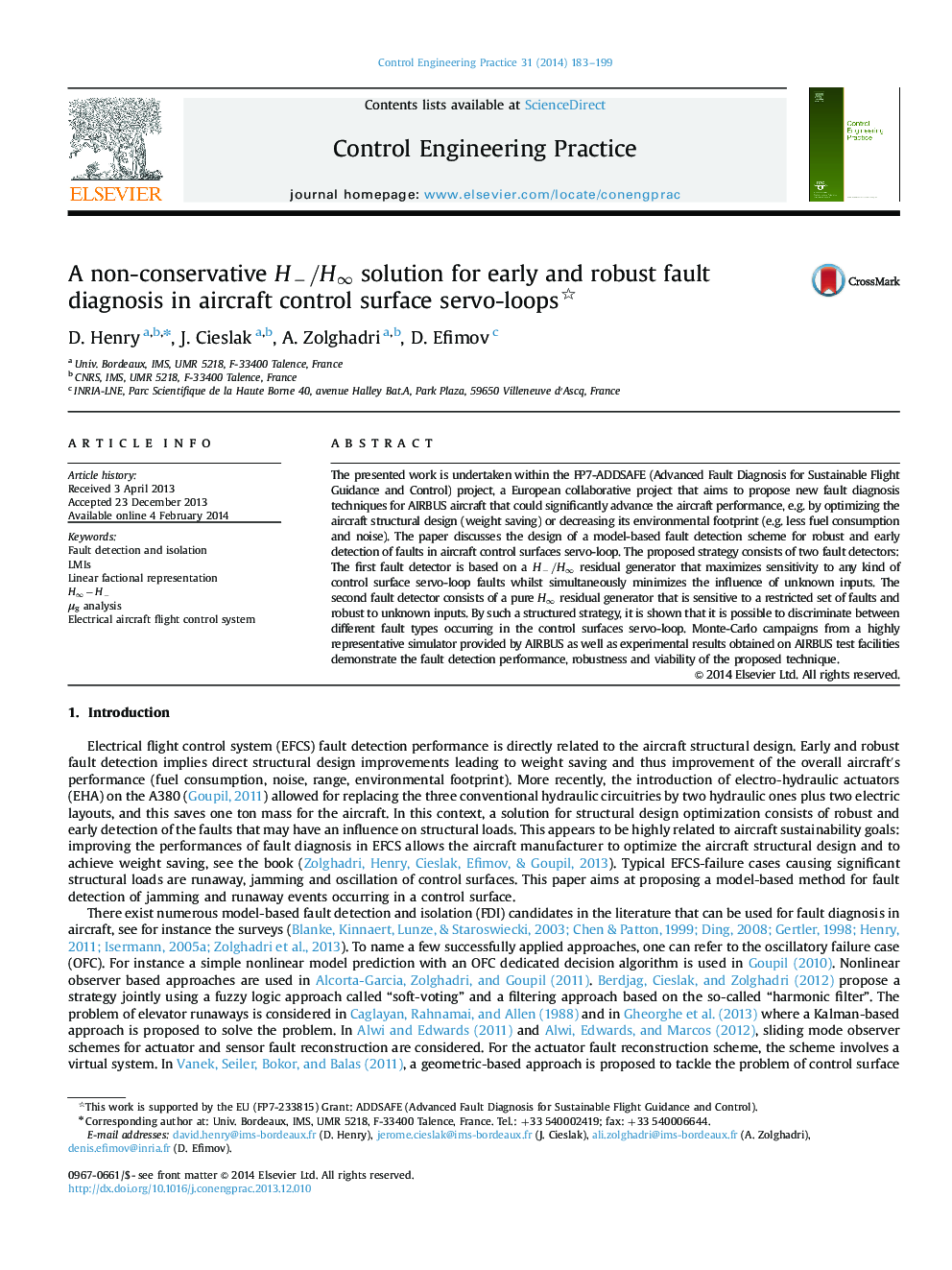| Article ID | Journal | Published Year | Pages | File Type |
|---|---|---|---|---|
| 699539 | Control Engineering Practice | 2014 | 17 Pages |
The presented work is undertaken within the FP7-ADDSAFE (Advanced Fault Diagnosis for Sustainable Flight Guidance and Control) project, a European collaborative project that aims to propose new fault diagnosis techniques for AIRBUS aircraft that could significantly advance the aircraft performance, e.g. by optimizing the aircraft structural design (weight saving) or decreasing its environmental footprint (e.g. less fuel consumption and noise). The paper discusses the design of a model-based fault detection scheme for robust and early detection of faults in aircraft control surfaces servo-loop. The proposed strategy consists of two fault detectors: The first fault detector is based on a H−/H∞H−/H∞ residual generator that maximizes sensitivity to any kind of control surface servo-loop faults whilst simultaneously minimizes the influence of unknown inputs. The second fault detector consists of a pure H∞H∞ residual generator that is sensitive to a restricted set of faults and robust to unknown inputs. By such a structured strategy, it is shown that it is possible to discriminate between different fault types occurring in the control surfaces servo-loop. Monte-Carlo campaigns from a highly representative simulator provided by AIRBUS as well as experimental results obtained on AIRBUS test facilities demonstrate the fault detection performance, robustness and viability of the proposed technique.
